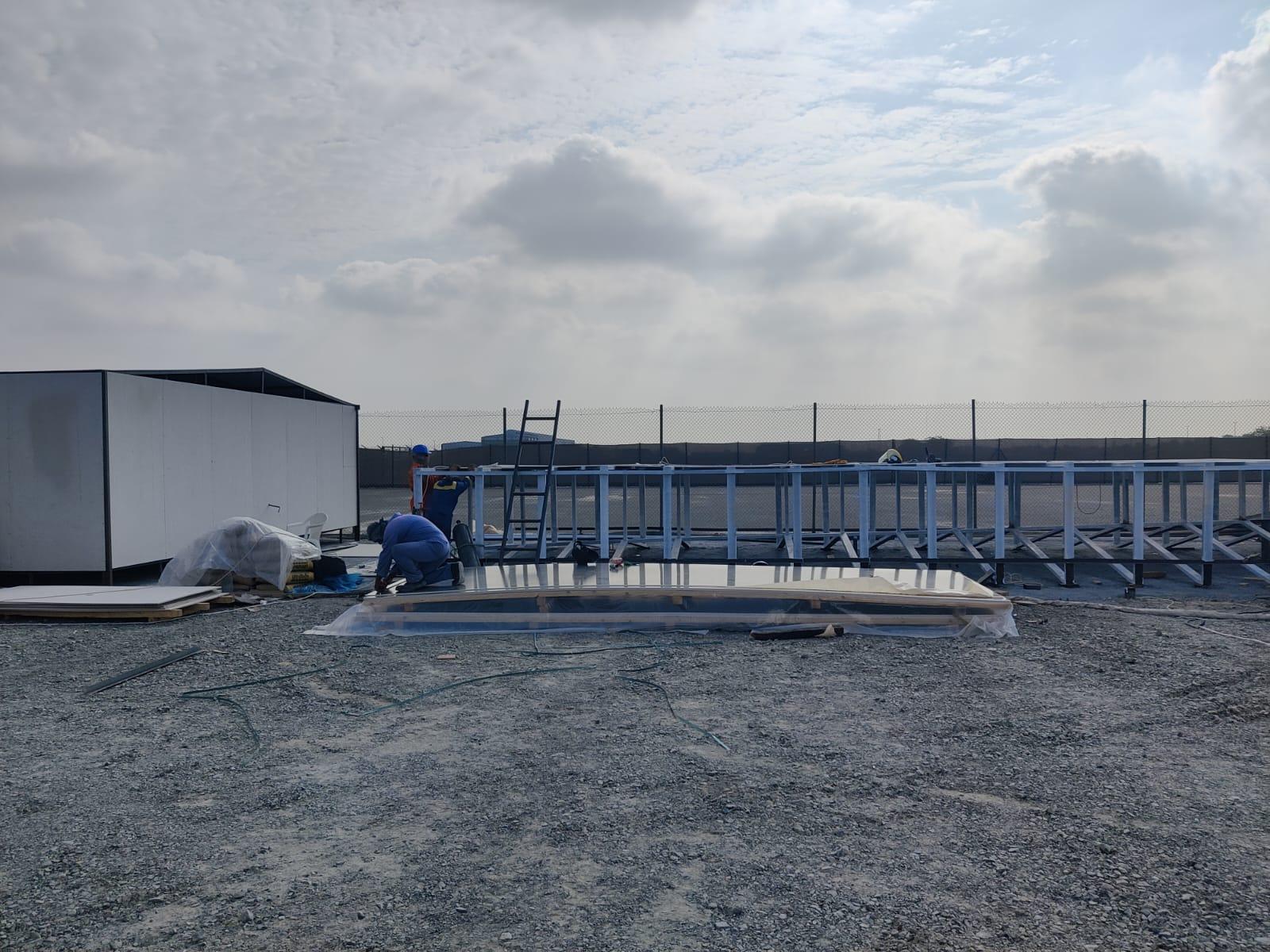Barge Building Company Leading the Way in Sustainable Maritime Solutions

Shipping today isn't merely about transporting loads from point A to point B. An innovative barge construction firm puts its energy into building ships that can haul enormous amounts of cargo, burn less fuel, emit fewer emissions, and last longer. Barges have been the backbone of commerce for decades, but as green expectations increase, VU Marine is demonstrating that cleaner construction can be both functional and profitable.
Barges – The Unassuming Drivers of International Trade
Over rivers, canals, and seaways, barges steadfastly keep the wheels of economies turning. Skilled barge makers in UAE contribute to this network of barges by building ships that carry grain, minerals, fuel, and building materials with remarkable efficiency.
Stats from the International Maritime Organization indicate the extent of maritime trade:
- More than 80% of goods by volume around the globe move by sea or inland waterways.
- One barge can carry 1,500 tons of freight—15 railcars or 60 trucks.
- Barges on average consume only 9% of the fuel trucks use per ton-mile.
- CO₂ emissions are 31% less than rail and over 80% less than road.
All these benefits make barges an essential element of any plan to reduce freight emissions.
Why Green Barge Construction Is Necessary
Previous barge designs emphasized strength and cargo capacity to the exclusion of nearly everything else. But shipping today is under pressure to meet challenging goals—like the IMO's goal of cutting CO₂ emissions by at least 40% by 2030 and working towards net zero by 2050.
To achieve these objectives, shipbuilders such as VU Marine are:
- Designing hull shapes for efficiency to reduce fuel
- Employing corrosion-free and recyclable materials
- Switching to cleaner forms of propulsion
- Incorporating waste treatment and emission control systems
Sustainability has moved from being a marketing attribute to becoming an operational imperative.
How VU Marine Constructs for the Future
1. Intelligent Materials
Lightweight alloys are replacing ageing heavy steel models. Being one of the seasoned aluminium barge manufacturers, VU Marine employs materials that are rust-resistant, reduce maintenance costs, and enhance speed without adding engine power.
2. Fuel-Efficient Designs
Hydrodynamic testing enables the team to make slight adjustments to hull curves, allowing barges to travel efficiently through the water and burn up to 15% less fuel than previous shapes.
3. Cleaner Power Solutions
Hybrid-electric drives, biofuel-compatible engines, and future-upgradeable designs keep barges ready for forthcoming regulations.
4. Environmentally Compliant Systems
Aboard treatment units and emission scrubbers enable operators to meet or beat environmental regulations without retrofits.
Economic Benefits of Green Barges
- Numerous operators are concerned with the front-end investment in new designs. But the figures tend to be persuasive:
- Fuel is a major cost—up to 40% of overall operating costs. A 15% gain in fuel efficiency brings substantial annual savings.
- Robust construction can extend a barge's working life by 5–10 additional years.
- Compliance with emissions regulations ahead of time can pay for grants, incentives, or lowered port charges.
VU Marine customers frequently pay back the additional expense in a few years in the form of lower fuel and maintenance costs.
Example – New Generation River Barge
A recent VU Marine project was a 200-foot cargo barge for carrying agricultural products:
- Capacity: 2,200 tons
- Fuel savings: 12% over similar older boats
- Emissions: 20% reduced CO₂ emissions per trip
- Estimated lifespan: Approximately 35 years with minimal mid-life overhauls
It's evidence that superior performance and reduced environmental footprint can coexist.
Enabling Global Green Shipping Targets
Global and regional regulators are encouraging cleaner practices:
- 40% CO₂ emission reduction goal by 2030
- Phase-out of high-sulfur fuels
- Increased uptake of renewable power at sea
VU Marine's strategy guarantees each barge constructed today will continue to comply decades hence.
Challenges to Sustainable Uptake
Adopting green barges is not without its challenges:
- Increased initial expense for new technology
- Limited alternative fuel infrastructure
- Low awareness of long-term cost savings
VU Marine addresses these with flexible payment options, operator training, and retrofit programs for older fleets.
Looking Ahead – Where Barge Technology Is Going
- A number of technologies are crafting the next chapter of maritime transport:
- Automated navigation to minimize route and fuel consumption
- All-electric variants for short-range cargo transport
- Modular construction for upgradeability
High-performance composites that are lighter, stronger, and longer-lived
The expansion of aluminum barge builders portends a lighter future, with less costly and polluting ships leading the way across the industry.
Lasting Impressions
Barges continue to be among the most environmentally friendly and economic means of transporting great amounts of products. With sustainability an inevitability in global shipping, VU Marine is proving that green design can also be good business.
With the integration of innovative materials, efficient engineering, and clean propulsion, the firm is constructing barges that pay dividends for decades—both to the operators and to the world. Investors in cleaner vessels today are not only complying with regulations; they're future-proofing their businesses in an industry that's rapidly evolving.
- Art
- Causes
- Crafts
- Dance
- Drinks
- Film
- Fitness
- Food
- Jocuri
- Gardening
- Health
- Home
- Literature
- Music
- Networking
- Alte
- Party
- Religion
- Shopping
- Sports
- Theater
- Wellness




